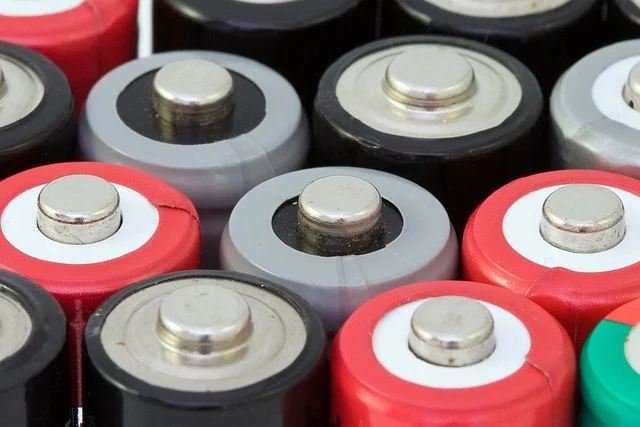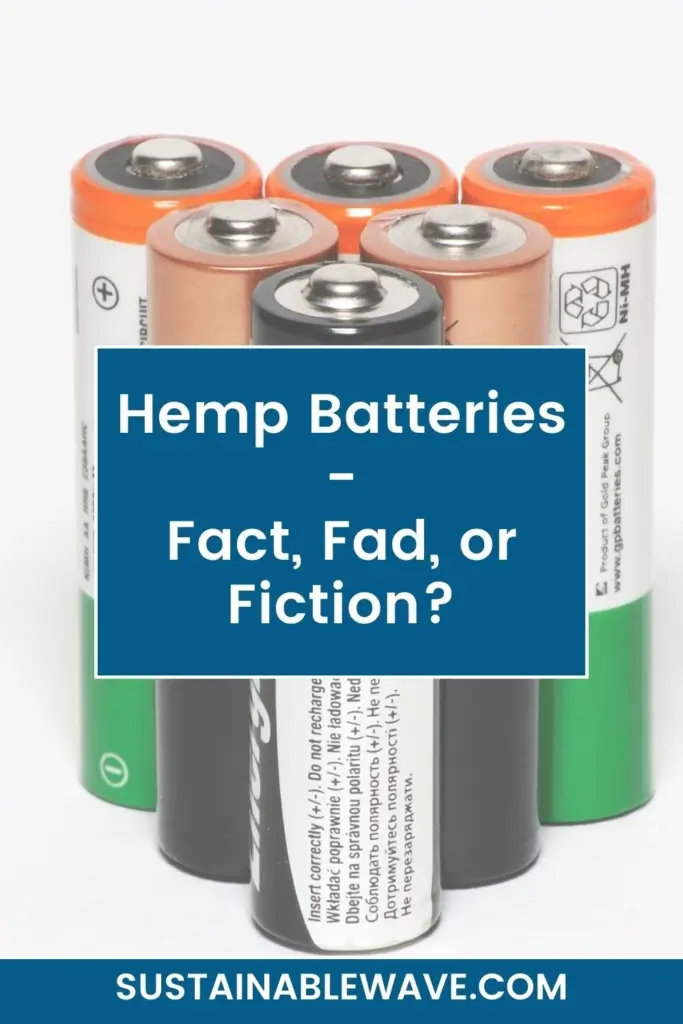In the quest for sustainable energy solutions, an unexpected contender has emerged: hemp.
Long known for its myriad industrial uses, hemp now steps into the limelight as a potential powerhouse in battery technology. But are hemp batteries a genuine innovation or just a fleeting trend?
Dive into “Hemp Batteries – Fact, Fad, or Fiction? A Complete Guide” to learn more about this green innovation, its viability, and its potential to reshape our energy future.
History of Hemp

Hemp, known scientifically as Cannabis sativa, has had a profound impact on human civilization for millennia. Originating in Central Asia, this incredibly versatile plant was first cultivated for its fiber over 10,000 years ago. Ancient civilizations utilized hemp for textiles, ropes, and even paper. The likes of Christopher Columbus’s ships were outfitted with hemp-based ropes and sails.
But its use wasn’t limited to fiber alone; hemp seeds have been a nutritional staple in many cultures, providing essential fatty acids and proteins. In the U.S., hemp was once so valued that farmers were legally required to grow it in colonies like Virginia, Massachusetts, and Connecticut.
Over time, due to its association with its psychoactive cousin marijuana, hemp faced legal and social challenges. However, the 21st century has sparked a resurgence in interest and recognition of hemp’s vast potential, beyond textiles and nutrition.
Are Hemp Batteries Real?
The world has been in a dire hunt for sustainable energy storage solutions, especially with the escalating concerns about the environmental impact of conventional batteries. Enter hemp batteries, a somewhat unexpected but promising solution in the energy storage landscape.
Yes, hemp batteries are real. They utilize the hemp plant’s bast fibers, which are processed into carbon nanosheets, serving as supercapacitors. These batteries offer rapid charge and discharge cycles and present a sustainable alternative to traditional lithium batteries.
In the early 2010s, researchers began exploring hemp’s potential in energy storage, and what they found was nothing short of revolutionary. The inner bark of the hemp plant, also known as the bast fiber, was discovered to have properties conducive to acting as a supercapacitor. Supercapacitors are like energy storage gold – they can charge and discharge in seconds.
Since this groundbreaking discovery, investments and research in hemp batteries have surged, pushing the boundaries of what we once thought was possible with this age-old plant.
Why Hemp?
In the age of sustainability, hemp stands tall, literally and figuratively, for several compelling reasons:
- Sustainability Matters: Unlike many traditional crops, hemp is a rapid grower, reaching maturity in just about four months. This fast turnaround means more crop yields in a shorter time frame.
- Environmental Impact: Hemp is a real environmental trooper. It requires minimal pesticides and herbicides, making it a less toxic crop to cultivate. Additionally, it naturally replenishes the soil with nutrients, reducing the need for chemical fertilizers.
- Carbon Sequestration: Hemp plants are efficient at carbon sequestration, pulling carbon dioxide from the atmosphere, which aids in combating the greenhouse effect and global warming.
- Economic Benefits: The resurgence of hemp not only promises environmental benefits but can also boost economies. As industries recognize its potential, from textiles to batteries, a robust supply chain can lead to job creation and new market opportunities.
How Do Hemp Batteries Work?
The secret sauce of hemp batteries lies in its bast fiber. Here’s a simple breakdown:
- Processing the Bast Fiber: The raw hemp fibers undergo a process to extract and refine the innermost part, resulting in a material that’s almost pure cellulose.
- Converting to Carbon Nanosheets: This cellulose is then subjected to a high-temperature treatment, converting it into carbon nanosheets. These nanosheets act as supercapacitors.
- The Role of Supercapacitors: Unlike traditional batteries that produce and store energy through chemical reactions, supercapacitors store energy physically, which allows for rapid charge and discharge cycles.
- Integration in Batteries: These carbon nanosheets, derived from hemp, can replace traditional—and often more expensive—materials in batteries, like graphene.
- Performance: While hemp batteries are still under research and development, preliminary results indicate their potential to outperform standard batteries in terms of both charging speed and storage capacity.
The beauty of hemp batteries lies in the fusion of nature and technology. As research progresses, there’s a genuine potential for hemp to revolutionize the energy storage domain, making it greener and more sustainable.
Hemp Batteries Vs Lithium – How Do They Differ?
When exploring the potential of hemp batteries, it’s paramount to understand how they stack up against their traditional counterparts, predominantly lithium-ion batteries.
Here’s a snapshot of how they contrast:
- Origin of Materials:
- Lithium: Extracted from the earth, predominantly through mining operations.
- Hemp: Sourced from the bast fiber of the hemp plant, a renewable resource.
- Production Impact:
- Lithium: Mining and processing can be environmentally taxing.
- Hemp: Eco-friendly, sustainable cultivation with reduced environmental footprint.
- Energy Characteristics:
- Lithium: Celebrated for its prolonged energy release and high energy density.
- Hemp: Stands out for rapid charge and discharge cycles, thanks to its supercapacitor properties.
- Cost Implications:
- Lithium: Production can be expensive due to reliance on metals.
- Hemp: Offers a potentially more affordable alternative, leveraging the scalability of hemp cultivation.
While lithium-ion batteries have been the gold standard for years, the evolving landscape of hemp batteries presents an intriguing and environmentally conscious contender in the energy storage arena.
Pros and Cons of Hemp Batteries

Every innovation comes with its set of advantages and challenges. Let’s break down the good and the not-so-good of hemp batteries.
Pros:
- Eco-friendly Production: Hemp cultivation is sustainable, requires minimal chemicals, and helps in carbon sequestration.
- Rapid Charging: Supercapacitor properties allow for lightning-fast charging times.
- Potential Longevity: While still under study, there’s potential for an extended lifespan.
- Cost-Effective: Hemp, especially at scale, can be a more affordable material than metals like lithium or cobalt.
Cons:
- Early Stage of Development: Hemp batteries are still in the research phase, meaning widespread commercial viability is yet to be determined.
- Energy Density: Initial versions might not match the energy density of traditional batteries, though this could change with further innovation.
Industry Adoption and Future Trends
Hemp batteries, given their nascent stage, are still finding their footing in the broader industry. However, several indicators show promise:
- Research Investment: Numerous institutions and corporations are pouring funds into hemp battery research, signaling a belief in its potential.
- Industry Collaborations: We’re witnessing collaborations between agricultural sectors and tech industries to optimize hemp quality specifically for energy storage.
- Future Adoption: With the global push for green solutions, industries may lean towards adopting hemp batteries, especially if they promise comparable performance to traditional ones at a fraction of the environmental cost.
Debunking Myths Surrounding Hemp Batteries
With any groundbreaking innovation, myths are bound to emerge. Let’s set the record straight on some common misconceptions about hemp batteries.
- Myth: Hemp batteries can get you high.
- Fact: Hemp batteries are derived from the non-psychoactive parts of the Cannabis plant. They have no THC content and, thus, no intoxicating properties.
- Myth: Hemp batteries are just a gimmick with no real potential.
- Fact: Scientific research has confirmed the potential of hemp-derived supercapacitors. It’s not just a trend; it’s grounded in solid science.
- Myth: They’ll soon replace all traditional batteries.
- Fact: While promising, hemp batteries are still in development. They may coexist with or complement traditional batteries rather than completely replacing them in the foreseeable future.
Innovations, especially those as promising as hemp batteries, often stir a whirlwind of excitement, curiosity, and skepticism. As with all technological advancements, time, research, and practical applications will paint a clearer picture.
Hemp Graphene – Here’s Why It Could Be The Real Deal
Graphene, a single layer of carbon atoms arranged in a hexagonal lattice, has been hailed as a wonder material. But it’s pricey. Enter hemp graphene. Derived from the hemp plant’s bast fiber, this alternative offers a tantalizing blend of performance and affordability.
The conversion of hemp’s cellulose into carbon nanosheets results in a product strikingly similar to graphene in terms of structure and conductivity.
With the global demand for efficient energy storage solutions on the rise, hemp graphene’s potential to offer performance comparable to conventional graphene, but at a fraction of the cost, positions it as a game-changer in the evolving energy landscape.
Final Words

As we chart the course of our energy future, the exploration of hemp batteries underscores humanity’s relentless pursuit of innovation.
With a blend of sustainability and potential performance, hemp emerges not just as an alternative but as a beacon of hope in our green energy endeavors. While research is ongoing, the promise of hemp in reshaping energy storage is undeniable.
Whether fact, fad, or somewhere in between, hemp batteries have ignited a conversation that challenges conventions and beckons a brighter, more sustainable tomorrow.
FAQs
How do hemp batteries compare to lithium-ion batteries in terms of energy storage? Hemp batteries, while still in development, are showing promising results, potentially rivaling the energy storage capacities of lithium-ion batteries.
What’s the lifespan of a hemp battery? While longevity varies, early indications suggest hemp batteries may last comparably or even longer than some traditional battery forms.
Can hemp batteries be recycled? Absolutely! One of the perks of hemp batteries is their recyclability, fostering a circular economy.
Are hemp batteries expensive? The initial costs might be higher, but with scale and development, prices are expected to drop.
Is the production of hemp batteries environmentally friendly? Yes, from cultivation to processing, hemp’s carbon footprint is lower than many traditional battery materials.
How soon can we expect hemp batteries to be mainstream? Given the current pace of innovation and interest, the next decade could see significant adoption of hemp batteries.
I’m Thomas, the owner of SustainableWave. Passionately promoting a sustainable planet. With experience in various eco-roles, I’ll share green tips, sustainability hacks, and personal eco-journeys on my blog.






